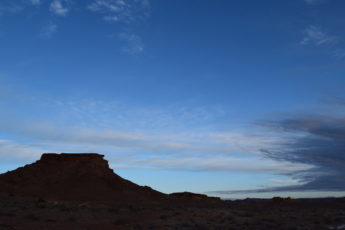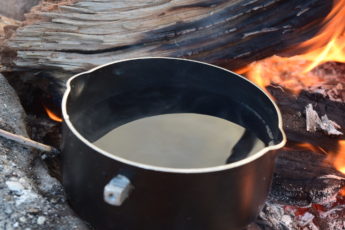Backpacking- Planning Before Leaving
Due Diligence Prior To Hitting The Trail
Knowing what lies in the path head is very important in many aspects of planning in life. Preparation, research and learning are vital to success in many endeavors. Camping and backpacking is no different than anything else in this regard. Days before leaving the house, it is highly advised that you do proper research, inspect your gear and make sure that everything is ready for your trip. If at all possible, this can prevent your trip from being the worst outing or best journey to date.
Permits & Administrative Details
It really sucks when you reach your destination, get out of the car, start to hike and are confronted by a ranger asking why your permit isn’t displayed. You drove 3 hours away and worked to get all of your gear ready but neglected to looking into the trials you were going to visit. The permit requirement wasn’t something you prepared for when getting ready and now you have to pay a fine. A recreational trip just turned into a violation of local laws you didn’t see coming.
Another example may be one where you brought firewood with you to an area which prohibits any type of campfires and allows no fire rings at campsites. How are you going to keep warm when the sun goes down? Now the smores ingredients you brought along aren’t what they were supposed to be without a fire. Do your pre-planning by first looking into local regulations and requirements.
Research The Area & Trails
With today’s access to so much information, not doing pre-trip research is just lazy. This laziness could at worst result in an unsafe trip or at best the most fulfilling time you’ve had outdoors. Knowing things like if you need permits, if campfires are allowed and the seasonal conditions are the basic requirements. If trails are impassable and you don’t know this until approaching them, you have just wasted a lot of time and energy into getting there for no reason. Seasonal shifts in local wildlife are vital as well. If the area’s bears just woke from hibernation, you probably want to wait a while until going there. Bears are known to be ravenously hungry and vicious when they wake from winter hibernation, best to stay away at that time. Think a little and read up on where you are going before even leaving home.
Weather & Climate Conditions
As weather can change unexpectedly in our daily lives, knowing what we may encounter is important away from home. This will impact the clothing you wear, the trip’s viability all the way to what you plan on eating. You don’t want to go in the middle of hail season when ice is falling from the sky but times when the temperature is comfortable may be ideal. Your sleeping system will be influenced by weather and your gear’s rating. Why bring a heavy jacket when it won’t be below 60 degrees F? This all goes into a well planned and thought out trip.
Gear & Necessities
After you have looked into the local regulations, trail/area conditions and weather forecast you can begin looking at gear. Taking into account the information you have gathered, you can understand what you will need to bring along. Ditching the down jacket when conditions are favorable can save weight. Knowing ahead of time that you won’t need your winter bag is also important for a good night’s rest. If the rain will be heavy when you are out, using a hammock may be a good alternative to your tent. If the area has little to no trees, how are you going to set your hammock up? Knowing what you will face is a huge factor to consider when prepping your pack and camp gear.
Food & Sustenance
You now know what to expect for conditions, permits, and your gear is ready. At this point you should be planning what it is you will eat along the way. Keeping in mind how long you will need to travel everyday and the amount of room available in your pack, you can plan what food to bring. Going 20 miles a day compared to 10 will require more food than less. If the trail conditions are favorable and elevation gain is low, you won’t need as many calories. In cases where you will be going through rough terrain or bushwhacking, you will need more energy. Perhaps your target area is one where wildlife will be fast on fresh scents of food. In this example you may want to bring food which will have less of a smell when prepared or consumed. All of this is dependent upon your prior research.
Getting Out There
Lastly, we have the travel method you are choosing to reach your target destination. If you are going by car and know that you will be in a remote area where traffic is light to non-existent you need to be planning ahead. Make sure that your car is in good working order, the tires have air, you go in with a full tank of gas and you top off any fluids. Bringing a gas can with you and an air compressor don’t take up much room but can save you hours if something goes wrong. If you are car camping, bring something that will allow you to jump your car if you accidentally drain the battery.
Lastly, Tell Someone Else What You Are Planning
Tell someone what you are up to, the area or trails you will be on and when to expect a call from you after it is done. This step will minimize your chances of being stranded in something goes wrong or if you are mobilized. Leave a copy of your trail plan and trip itinerary in the car. This is important if something happens to you and a search is initiated. This reduces valuable search resources and gives you a better chance of being located. The better your planning and detail, the easier it will be to locate you. Often times, if you are going to an area far from the nearest town, cell coverage can be non existent. If they have an area in particular they know where to go.
Have A Great Trip & Don’t Skip Planning
Being ready for what lies ahead is crucial to safety and success. If you know what to expect then you will know how to prep. Prepping for the trip becomes easier, you can bring what you need and also protect yourself from unfortunate events. Giving yourself the best chance to have a safe trip can be the difference between an awesome weekend or terrible experience. Be smart, plan ahead and use this information to your advantage. Have fun, be smart and adapt when things go wrong.


